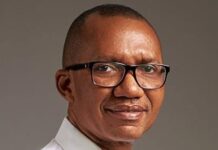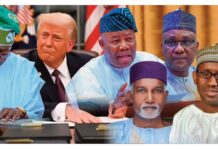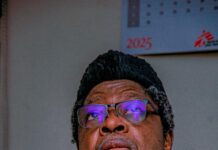BreakThrough
This is the concluding part of a 4-series article that chronicled three important issues concerning Nigeria, our motherland, in which we by divine will, found ourselves as citizens. The first issue is Nigeria as a nation with her very rich and unquantifiable natural resources. The second issue is Nigerians as citizens with their unlimited ingenuity, resourcefulness, capacity and making waves in all nooks and crannies of the seven continents of the World. The third issue is the missing link that is supposed to connect the country with these special breeds of Nigerians.
In the first article we presented the variety of Natural Resources available in all the 36 states and FCT. They range from precious metals various stones to industrial such as Barites, Gypsum, Kaolin and Marble. Each state and FCT has at least over three mineral resources. Example, Kaduna state alone has varieties of minerals such as Amethyst, Aqua Marine, Asbestos, Clay, Flosper, Gemstone, Gold, Graphite, Kaolin, Hyanite, Mica, Rock Crystal, Ruby, Sapphire, Sihnite, Superntinite, Tentalime, Topaz& Tourmaline. Similarly, Nasarawa, Ondo, Plateau, Sokoto, Edo, Imo, Zamfara and Katsina states have varieties of mineral resources like to those in Kaduna State.
Each of these mineral resources is reported to be in appreciable quantity spread over large areas. For instance, there are about 3 billion tonnes of iron ore deposits in Kogi, Niger and FCT, 10 million tons of zinc/lead in Abuja, Kano, Cross River and over 2 million tons of rock salts and over 3 billion tons of coal deposits in Plateau, Enugu, Anambra and other states. Large quantity of gold is found in Zamfara, Sokoto, Oyo, Niger, Kwara and Kebbi states among others.
Two other major natural resources extremely important and dependable to Nigeria are oil and gas. Nigeria is the largest oil producing country in Africa. Experts have estimated that Nigerian oil and gas reserves are 23 billion barrels of crude oil and 160 trillion cubic meters of gas www.nigeria.gov.ng. These mineral resources provide tremendous investment opportunities for economic growth and nation building. Additionally, Nigeria has mean annual rainfall of 1390 mm resulting to 305 billion cubic meters of water annually.
Thus, Nigeria has seven distinct climate zones, which provide average annual rainfall ranging from 700 mm in the far north (Sahel savannah) to 4,000 mm in riverine and mountainous areas in the south. Again, the third biggest River with a length of 4,180 Km in Africa, River Niger passes through the country and drains an average discharge of 5,589 m3/s into the Atlantic Ocean. The River has six major perennial rivers as tributaries crisscrossing the length and breadth of Nigeria making it the most endowed country with unlimited water resources.
Land resources are similarly in abundance. Nigeria has 91 million hectares of arable land with merely 50% utilization despite the quantum of water resources, soil fertility, favorable topography and climates.
The second and third parts of the article dwelled on the Nigerians, the population explosion. From 1960 to 2019, Nigerian population increased by 444%. Today, one person out of 39 people in the World is a Nigerian. In the next thirty years, Nigeria will have an estimated population of 450 million people and will occupy the 3rd position as the top most populous country in the World after India and China. Interestingly, more than 60 percent of Nigerian population is under the age of 24 years. The rate of population growth in Nigeria is “one birth in every four seconds and one death in every fourteen seconds”.
This demographic analysis clearly shows that Nigeria is tremendously endowed with human resources. Despite low quality of human resources, the few qualitative Nigerians are excellently performing in their various endeavors. Among this category of Nigerians are duly elected people in to various political offices in Diaspora. The citizens of their host countries elected such Nigerians in Europe and America were presented.
In United Kingdom alone nine prominent Nigerians were elected either as mayors or British Members of Parliament. Names like Chuka Umunna, Helen Grant, Abimbola Afolami, Kate Osamor and Kemi Badenoch featured. Others were Ernest Ezeajughi, Chinyelu Susan Onwurah and Olugbenga Babatola among several Nigerians. In most cases, they made history as the first black persons to hold such elective posts, which were hitherto exclusive reserve for white men/women or indigenous people of such countries.
On excellent academic feat achieved by Nigerians abroad, we gave an instance of an exquisite example of Nigerians’ performance at the graduation ceremony of Howard University, Washington DC in 2016. These few Nigerians endowed with creative capacities and innovative thinking underscore the creativity of Nigerians in excelling amid challenges. Nigerians graduating from the university won sixteen academic prizes out of a total of twenty sevens available prizes. The total number of graduates came from 46 states of America and 35 other countries across the globe. Yet, Nigerians won 16 awards and left only 11 awards to American citizens from 46 states and other nationals from 34 different countries.
On invention, innovation and business, three among many other Nigerians who distinguished themselves were mentioned. At the end of the three articles, questions were asked. With all these vast natural resources and few citizens with high innovative acumen and excelling in all aspects of human endeavor, why is Nigerian system not working? Why is the country facing multifaceted problems? What is really the missing link between Nigeria with her vast resources and the few distinguished Nigerians who are superbly doing well in other climes? There are factors for fast-tracking the linkage.
The factors responsible for bringing the missing link are good governance and nationalism. Good governance and nationalism are the strong pillars for nation building and excellent performance among the comity of nations. What are the factors embedded in good governance and nationalism? How can Nigerian people use them to address our challenges to the national development?
Good governance is an elusive objective that means different things to different people or organizations depending on what the intention is aimed at. However, there is a general consensus on its concept: “good governance is perhaps the single most important factor in eradicating poverty and promoting development”. It is therefore an effective and responsible management of an organization, a society or country that includes good consideration of the society’s needs in decisions making.
Good governance centers on the responsibility of governments and governing bodies to meet the needs of the entire people as opposed to those of select groups in society. Consequently, the leaders of good governance must revisit policies that have worked in the past, set priorities in a strategic way, consider policies with greater impact on poverty alleviation and development as well as look for innovative ways to implement such policies effectively. What are the factors initiating good governance?
The first factor is the establishment and due adherence to the rule of law, leaders and followers must respect law, regulation, procedure and order in their conducts privately and officially. Nobody should be above the law and the law should treat citizens equally before it. Anarchy and chaos hold sway in a society where rule of law is absent. The second one is provision of security. Physical, economical and social security must prevail at all times to galvanize economic development and allow peace to prevail. The best of an average citizen comes out when such citizen feel secured and assured socially and economically, corruption has relatively no place where rule of law is strictly observed.
The third factor of achieving good governance is strategic planning with clear focus for national development. A country must have a national developmental plan, what the country wants to achieve now and in the future; short, medium and long term plans with clear strategies on how to accomplish such plans. There must be national focus and direction and a clearly defined strategy to move the country towards such direction. The strategy must include actions to implement the strategic plan. The choice of the actions must be made based on merit and national spread to create sense of ownership to the citizens.
The second pillar of nation building is nationalism. The word nationalism has both negative and positive connotations depending on context and individual outlook. However, in this piece, Nationalism is an ideological concept based on the premise that the individual’s loyalty and devotion to the nation-state surpass other individual or group interests. Thus, nationalism makes people to think of what first they can do for their country before what their country should do for them.
In conclusion, President Muhammadu Buhari has an ample opportunity to midwife and mastermind the erection of these two pillars: good governance and nationalism to galvanize true change in the right direction.
Yes, Nigeria must drift from the abyss of despair and calamity, move towards economic progress and deservedly acclaim its rightful position. Can the Buhari regime make it? Four years period is enough time to do that.
Read also: Nigeria and Nigerians’ Creativity – the Missing Link (I), by Professor MK Othman
Professor Othman is the Executive Director of National Agricultural Extension and Research Liaison Services (NAERLS), ABU Zaria.
Follow the Neptune Prime channel on WhatsApp:
Do you have breaking news, interview request, opinion, suggestion, or want your event covered? Email us at neptuneprime2233@gmail.com




